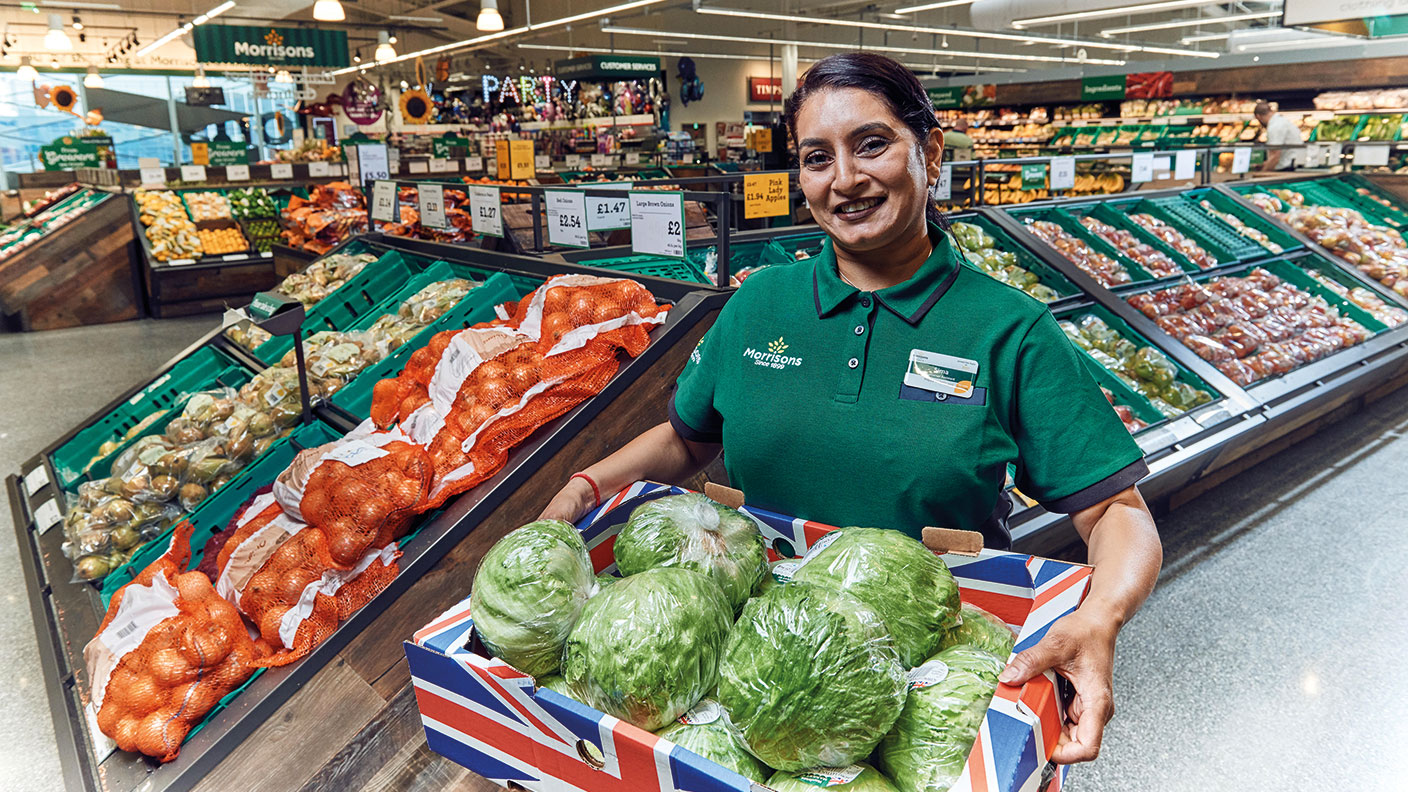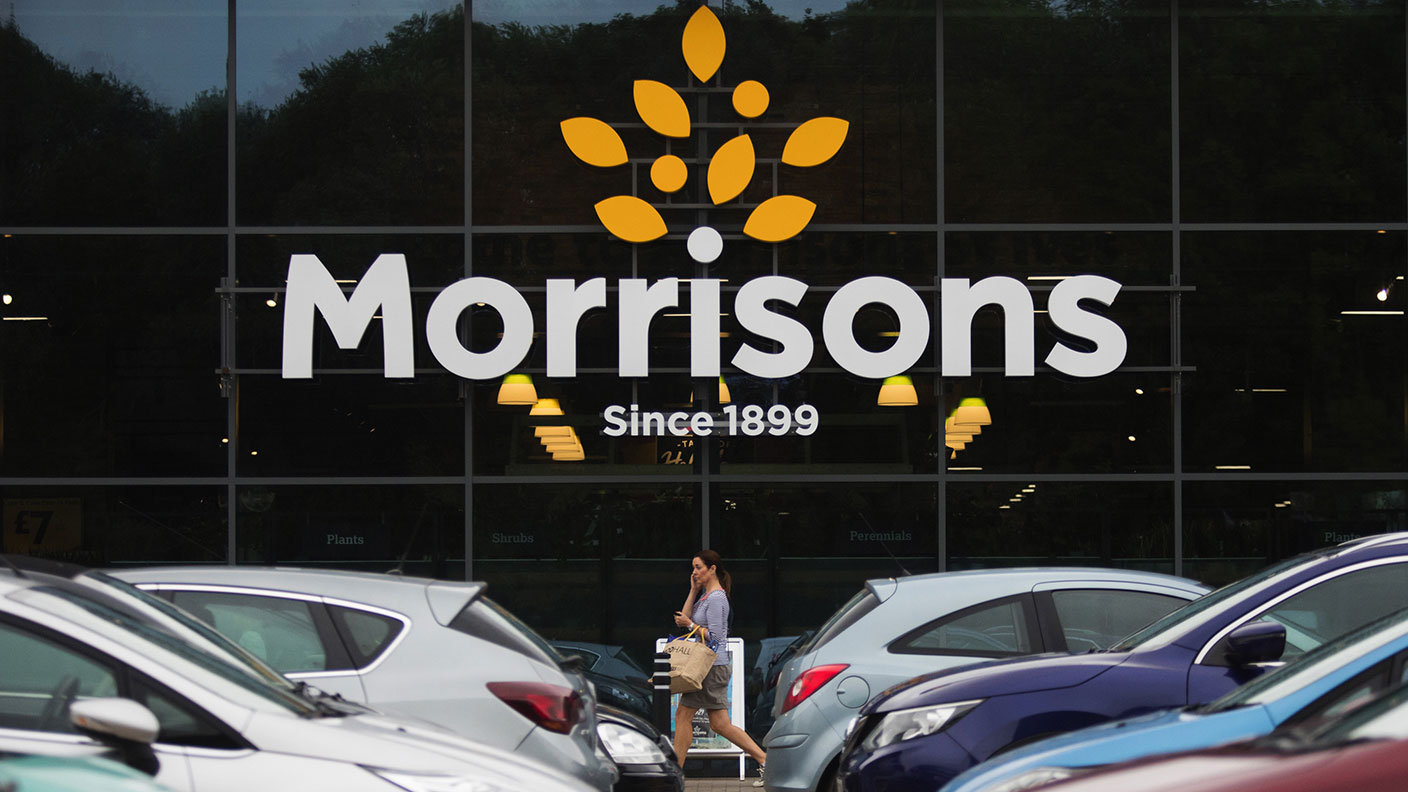How to find quality shares
While good-quality stocks rarely come cheap, that doesn't mean you should ignore them. Phil Oakley explains how to spot established stocks worth buying.
Get the latest financial news, insights and expert analysis from our award-winning MoneyWeek team, to help you understand what really matters when it comes to your finances.
You are now subscribed
Your newsletter sign-up was successful
Want to add more newsletters?

Twice daily
MoneyWeek
Get the latest financial news, insights and expert analysis from our award-winning MoneyWeek team, to help you understand what really matters when it comes to your finances.

Four times a week
Look After My Bills
Sign up to our free money-saving newsletter, filled with the latest news and expert advice to help you find the best tips and deals for managing your bills. Start saving today!
Good companies that deliver growth and profits consistently and don't spring many if any nasty surprises on investors often don't make the most exciting investments. That's because people get to know that they are good and this is in turn reflected in the price of the shares. You very rarely get the opportunity to buy a good company at a bargain price.
But that doesn't mean you can't profit from them. And if you are a conservative investor and want to sleep at night, then buying the shares of good companies makes a lot of sense. Holding on to these types of firms for a long time while reinvesting your dividends can be a very effective way to build your savings. So what makes a good' company?
Profits don't tell the whole story
A key thing to understand is that there is much more to a good company than profits. Growing profits alone isn't the only hallmark of a very good firm. That's because a company can make profits in two main ways. The best way is to sell more products without having to spend much more money. The not-so-good way is to spend money on expanding the existing business, or buying another one.
MoneyWeek
Subscribe to MoneyWeek today and get your first six magazine issues absolutely FREE

Sign up to Money Morning
Don't miss the latest investment and personal finances news, market analysis, plus money-saving tips with our free twice-daily newsletter
Don't miss the latest investment and personal finances news, market analysis, plus money-saving tips with our free twice-daily newsletter
So as an investor, you need to identify how a company is growing its profits. If a company is just spending to buy in' profits, then profits will rise. But what happens when the spending stops? Think about it this way. If you are a saver, and you want more income from your savings account, there are two ways to get it. You can find a higher interest rate make your existing cash work harder or you can just add more money to an existing account at the same or lower rate of interest. Both approaches boost your income, but the former is a much more effective and desirable way of doing so than the latter.
Getting back to basics
It makes sense to look at a company in the same way. Ultimately, companies get their money from either lenders (bondholders) or owners (shareholders). These investors want a return on their money. And as a shareholder you're going to expect more than a bondholder (because you're behind them in the queue) and certainly a good bit more than you could get if you just stuck your money in a bank account, which carries almost no risk. So you want to be sure that the company is putting your money to good use.
When a company invests money in its business, the return it gets back is called the return on capital employed (ROCE)'. This is really no different to the interest rate on a savings account, in terms of what it tells you. The higher the ROCE, the better the company is at making money from money. If a company can't deliver the sorts of returns that its investors need, it will rapidly find that its share price falls to a level that reflects these diminishing expectations.
I've looked at a real life' example of how this works below. The point is, you need to look beyond simple profits, and consider how hard a company is making your money work for you.
Does Morrisons measure up?
On the face of it, super market chain Morrisons has done quite well over the last five years. Earnings per share (EPS) has grown by 54% from 17.2p in 2008/2009, to 26.6p in 2012/2013. Yet its share price has only gone up by 9.6%, at a time when the UK stock market has risen by more than 70%. Why has Morrisons done so badly? Because it's been making lower returns on investors' money. I won't get into the technical details. But Morrisons' cost of capital what its after-tax returns (its trading profits less tax, divided by money invested) need to be to keep investors from going elsewhere is conservatively around 8%.
After it bought Safeway in 2004 it initially struggled to make much money. But it gradually became more efficient and attracted more shoppers into its stores. By 2010 it was making enough and shareholders were happier the share price was rising and bigger dividends were being paid. But since 2011 returns have been falling. Morrisons' shoppers are spending less, and the company is also losing market share.
This is a big problem for Morrisons. That's because over the last two years it has invested a lot more money in its business, but has been getting very little back in return. The numbers make for grim reading. It has invested £1.1bn of extra money, but trading profits have only risen by £45m. That's a puny return of just 2.9% after tax.
As a result, Morrisons' overall after-tax returns at 8.75% are barely enough to keep investors happy (bearing in mind they want a minimum of 8%). And they may well keep falling, if the money currently being invested in convenience stores and internet groceries doesn't pay off. This means the business is likely to become ever less valuable in the eyes of investors.
Worse still, Morrisons' EPS growth has been flattered by the £1bn spent on reducing the number of its shares in issue. But this £1bn has been spent on buying shares in a business that has been steadily losing value so it hasn't done shareholders much good.
Professional investors have already seen through this accounting exercise, looked at the falling returns, and decided to put their money elsewhere. This is why Morrisons' shares have been a bad investment and are likely to continue to be.
Get the latest financial news, insights and expert analysis from our award-winning MoneyWeek team, to help you understand what really matters when it comes to your finances.
Phil spent 13 years as an investment analyst for both stockbroking and fund management companies.
-
 Can mining stocks deliver golden gains?
Can mining stocks deliver golden gains?With gold and silver prices having outperformed the stock markets last year, mining stocks can be an effective, if volatile, means of gaining exposure
-
 8 ways the ‘sandwich generation’ can protect wealth
8 ways the ‘sandwich generation’ can protect wealthPeople squeezed between caring for ageing parents and adult children or younger grandchildren – known as the ‘sandwich generation’ – are at risk of neglecting their own financial planning. Here’s how to protect yourself and your loved ones’ wealth.
-
 Morrisons takeover bid: supermarket is an attractive target for private-equity buyers
Morrisons takeover bid: supermarket is an attractive target for private-equity buyersNews A private-equity group has made an offer for Morrisons, Britain’s fourth-largest supermarket. Other bids are likely to emerge. Matthew Partridge reports.
-
 Morrisons is just the start – get ready for a private equity feeding frenzy
Morrisons is just the start – get ready for a private equity feeding frenzyAnalysis The bid to buy the Morrisons supermarket chain is the latest example of UK listed companies being snapped up by private equity groups. It won’t be the last, says John Stepek – we could well see a feeding frenzy before this is all over.
-
 Morrisons back from the brink
Morrisons back from the brinkFeatures The supermarket chain has made a strong recovery from a near-death experience. How did CEO David Potts do it? Alice Gråhns reports.
-
 Amazon chews up the grocery market
Amazon chews up the grocery marketFeatures If you hold supermarket shares, watch out, says Alex Williams. Amazon plans to shake up the grocery sector.
-
 Glimmers of hope for Morrisons
Glimmers of hope for MorrisonsNews Supermarket Morrisons enjoyed better-than-expected sales over Christmas.
-
The ten most-hated shares in the FTSE
Features These are London’s ten most-hated shares, judged by the percentage of stock being shorted.
-
Shares in focus: How our tips have fared this year
Features It's been a tough year for stocks. Phil Oakley looks back over the share tips he made in 2014 to see how they have fared, and what investors should do next.
-
It’s time for an orderly retreat in the supermarket wars
Features The big four supermarkets could spend billions taking on the discounters. But the City should not allow them to, says Matthew Lynn.